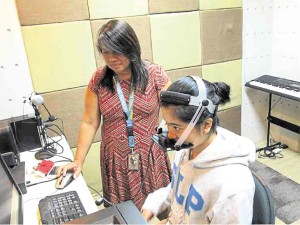Economic managers and big business have committed to further enhance cooperation in addressing pending concerns in the remaining days of the Aquino administration and beyond.
Last Friday, the Second Public-Private Sector High-Level Dialogue (PPSHLD) was held between the Cabinet Economic Development Cluster and private sector leaders belonging to the Philippine Business Groups and the Joint Foreign Chambers (PBG-JFC).
“We had a productive and healthy exchange of ideas with the private sector on a range of issues. We agreed that infrastructure is an integral ingredient to advancing to our next stage of economic development and discussed ways of cooperating on infrastructure investments,” Finance Secretary Cesar V. Purisima, who heads the Cabinet Economic Development Cluster, said in a statement to the Inquirer.
“We also explored means to improve agricultural productivity to advance inclusive growth, and discussed how we can possibly reduce the cost of power to give sectors like manufacturing a leg up. Lastly, we talked synergy and efficiency in governance, looking at ways to rationalize or repeal redundant or counterproductive issuances,” Purisima added.
The Finance chief noted that “continued engagement between the private and public sectors has been a cornerstone of our progress for the past six years.”
Makati Business Club (MBC) executive director Peter Angelo V. Perfecto said last Friday’s meeting formed part of the country’s Open Government Partnership Plan up to 2017, which had established a continuing dialogue between the PBG-JFC and the economic cluster of the Cabinet to address priorities of business and the economy as well as other national issues.
“The PPSHLD agreed to convene again in June to look at transition priorities and concerns as well as discuss country strategic plans until 2040,” Perfecto said in a text message.
The dialogue was attended by high ranking officials of the departments of Finance, Budget and Management, Public Works and Highways, Trade and Industry, and Transportation and Communications, as well as the National Economic and Development Authority and the Public-Private Partnership Center.
The private sector, meanwhile, was represented by leaders of MBC, Alyansa Agrikultura, Chamber of Mines of the Philippines, Financial Executives Institute of the Philippines, Management Association of the Philippines, Philippine Chamber of Commerce and Industry, as well as the American, Australia-New Zealand, European, Japanese and South Korean chambers and Philippine Association of Multinational Companies Regional Headquarters.


